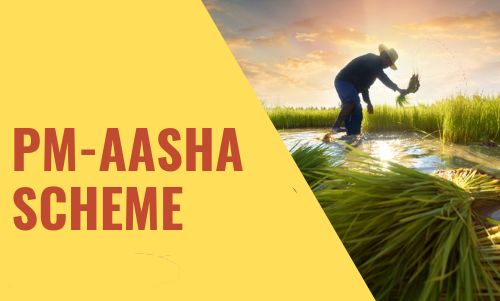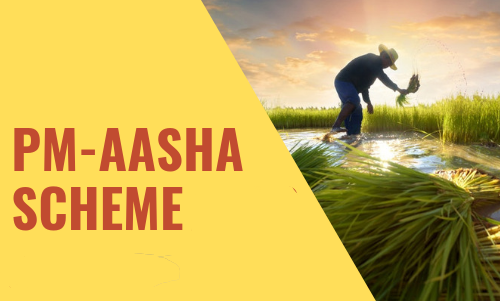
Pradhan Mantri Annadata Aay SanraksHan Abhiyan’ (PM-AASHA) is an umbrella scheme to ensure Minimum Support Price (MSP) to farmers. It comprises the erstwhile Price Support Scheme (PSS) with certain modifications and rolling out of new schemes of Price Deficiency Payment Scheme (PDPS) and pilot of Private Procurement and Stockist Scheme (PPSS). Under PM-AASHA, States/UTs are offered to choose either PSS and PDPS in a given procurement season with respect to particular oilseeds crop for the entire State. Pulses and Copra are procured under PSS. Only one scheme i.e. PSS or PDPS may be made operational in one State with respect to one commodity. Further, states have the option to roll out PPSS on pilot basis in district/selected APMCs of district involving the participation of private stockist for oilseeds. Further, wheat paddy and coarse grains are procured under the existing schemes of Department of Food and Public Distribution and Cotton is procured under the existing schemes of Ministry of Textiles. It is helping farmers in getting increased MSP which provides adequate returns over the cost of production.
Government fixes MSP for 22 mandated crops which are paddy, jowar, bajra, maize, ragi, arhar, moong, urad, groundnut-in-shell, soyabean, sunflower, sesamum, nigerseed, cotton, wheat, barley, gram, masur(lentil), rapeseed/mustard, safflower, jute and copra. In addition, MSP of Toria and de-husked coconut are also fixed on the basis of the MSPs of rapeseed/mustard and copra respectively.
This information was given in a written reply by the Union Minister of Agriculture and Farmers Welfare Shri Narendra Singh Tomar in Lok Sabha yesterday.

